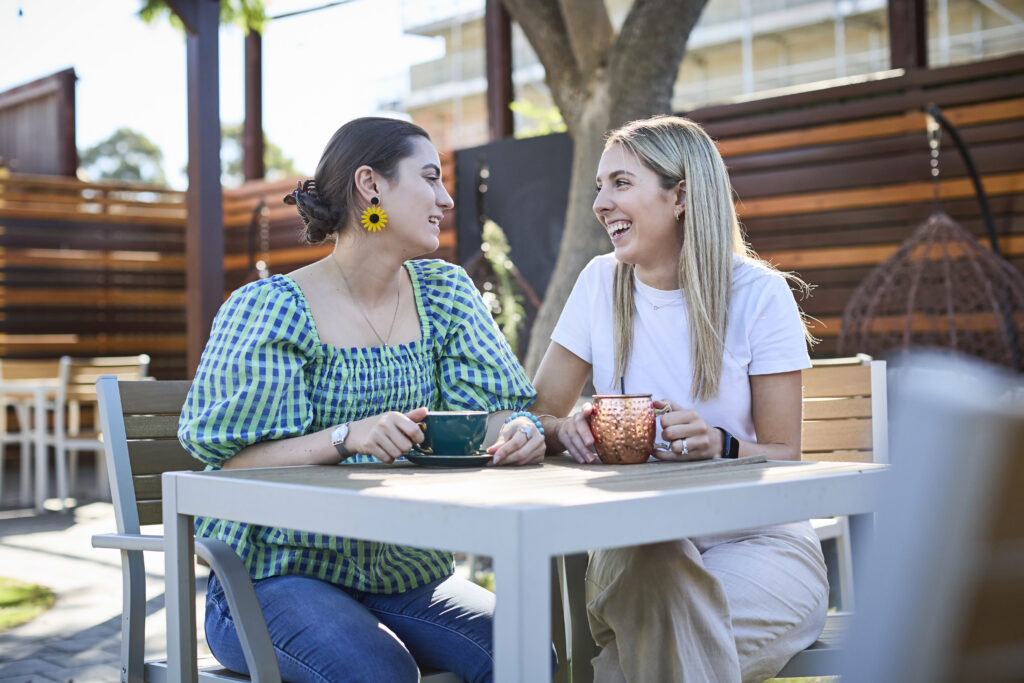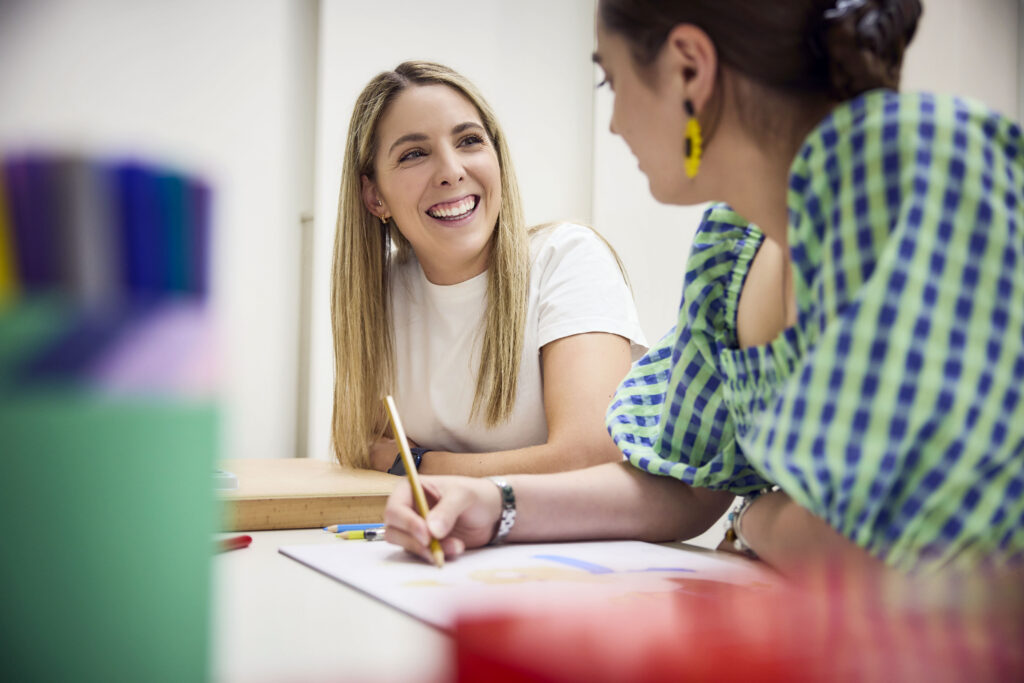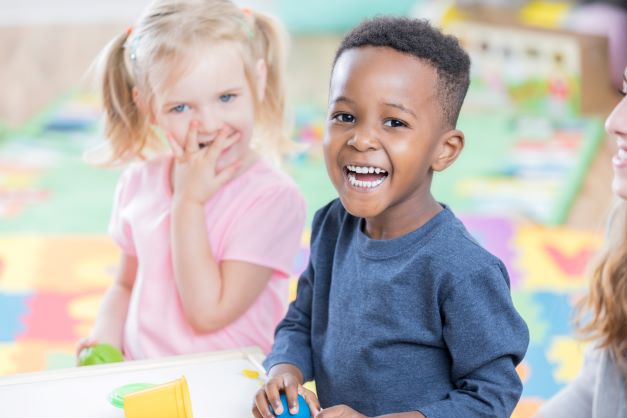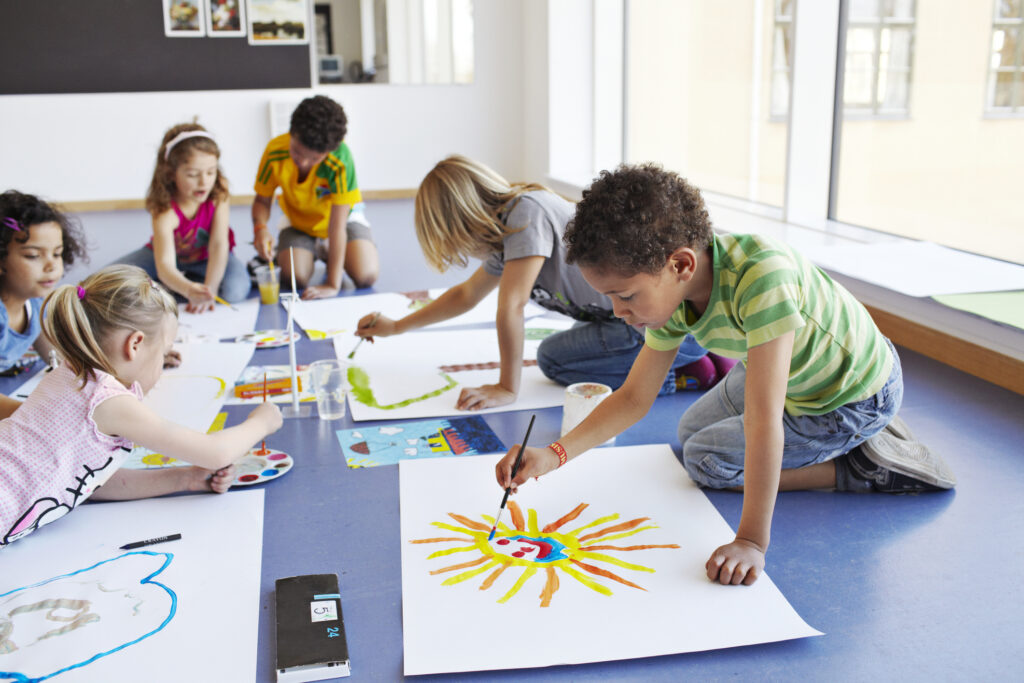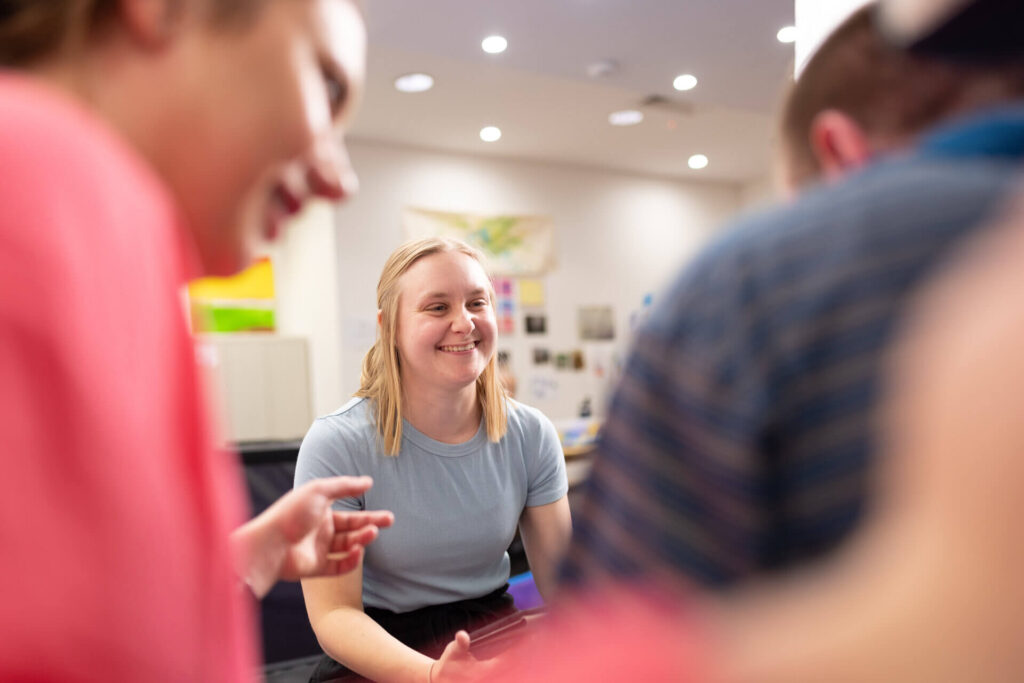The most important fine motor skills children need to develop
By Dr Nicole Grant, Practice Principal, Early Start Australia | Qld | Murarrie, Toowong
What are fine motor skills?
Fine motor skills refer to the way in which we use our hands to complete tasks.
We might use one hand or two hands, one or two fingers, or all of them with our thumb.
Babies are born with very basic fine motor skills.
They can make a fist with each hand to grab an object.
They may struggle to open and close their fist at will.
With practice, their fine motor skills will develop and they will have a fun time while they learn!
There are typical stages of how and when babies and children develop their fine motor skills.
They start with generally grabbing at things, like their toys and your hair, and will over time get better control over their hands.
During infancy babies will learn to grasp and release, they will learn to pick up things with more accuracy, and they will be able to pick up things that are smaller and require a bit more coordination.
Unfortunately, this usually coincides with their tendency to explore things with their mouths, which can mean small things can be a hazard.
Fine motor skills during toddlerhood
During toddlerhood, children will improve their fine motor skills to the point that they can start to not only hold things, but also hold things using a more precise grasp and they will use objects meaningfully.
This includes using a spoon to move food to their mouths or engaging in pretend play with a brush and their doll’s hair.
They also start to experiment with using crayons to scribble.
Initially children will make marks that do not necessarily have specific meaning.
As their fine motor skills improve and they gain better control of their hands, they will attempt to draw more familiar images – usually people and common objects such as trees, flowers and houses.
When learning to use crayons and pencils to draw or colour in, children will usually start with a cylindrical grasp.
They will hold the pencil or crayon in their fist.
Over time, this grasp matures and will eventually become a tripod grasp.
The tripod grasp is best for handwriting.
Challenges with developing a functional pencil grasp is one of the most common reasons children are referred for occupational therapy.
As fine motor skills improve, children will become more independent with important daily living skills such as dressing.
They can pull up pants, put on socks, and eventually master buttons and then shoelaces.
For fine motor skills to develop efficiently, it’s important that a hand preference or hand dominance is established in the preschool years.
It is also important for children to have control over their larger muscle or gross motor muscle groups to ensure they have a good seated posture for desktop work.
We mentioned earlier that small things can be hazardous to babies and very young children.
To promote fine motor skill development, safe options for play should be provided.
One idea is to create or buy a Baby Busy Board.
These boards have moving parts that are anchored to the board for safety, but that can be explored by small curious hands.
It’s important that children in their infancy have exposure to a range of sensory experiences.
Appropriate development of the sensory system (taste, touch, smell, vision, hearing, proprioception and vestibular/balance) provides children with a good foundation for development of other skills.
The ability to effectively process sensory input is essential for the development of fine motor skills, as well as coordination, and executive functioning skills such as concentration, and even emotional regulation.
Another great activity for developing fine motor skills in older babies is to create a photo board book that they can hold and explore.
- Babies love looking at faces – Looking at photos of familiar people is an enjoyable activity for them and over time, they will be able to recognise the people in the photo by name and even point to them when asked.
- Pointing is a fine motor skill – Reading together in this way is also a wonderful activity to practice joint attention skills, which involves participating in a shared activity, turn taking, and communicating about the shared experience (pointing is communicating!).
Fine motor skills through play
The best way to help your children develop their fine motor skills is through play.
In the preschool years, children will be mastering drawing with a range of pencils, crayons and markers, and will also be learning how to use scissors.
An activity for practicing fine motor skills that is appropriate for this age group is construction play with cardboard boxes.
Creating a cardboard box city is lots of fun and there’s endless opportunities for creativity.
Children can cut up boxes and cardboard tubes to create tunnels and garages for cars and add other features such as paper dolls and trees.
Challenges during primary school
In the primary school years, some children struggle with handwriting.
They may find it challenging and resist putting pen to paper.
Activities that develop the fine motor skills required for handwriting do not always need to include pen and paper.
One reason why children may not enjoy desk-based work can be because they find it hard to maintain a seated posture for a long period of time.
This makes drawing tasks uncomfortable.
Drawing or painting on vertical surfaces, such as a wall or fence is great for developing core muscle strength, which is necessary for maintaining a good seated posture.
Poor core muscle strength has been linked to poor endurance, poor concentration and easy fatigability in class time, so working on this is important from an early age.
When to consult with an occupational therapist
It is important to consult with an occupational therapist if you have any concerns at all about your child’s fine motor development.
Kids who struggle with fine motor skills can become frustrated with themselves and stop trying to do things for themselves.
They can also experience a loss of confidence and eroded self-esteem.
An occupational therapist can help to identify potential causes for difficulties through a fine motor skills assessment and provide you with strategies to help them get back on track.
Want to learn more?
At Early Start Australia, we offer a range of early childhood intervention services, such as children’s occupational therapy, psychology, paediatric physiotherapy, and speech therapy for kids, so you and your child can move forward with confidence.
Our multidisciplinary team will work tirelessly together with you to understand your child and how we can help them with the right strategies and tailored therapies.
Like you, we want to give your child every opportunity for a happy and healthy life.
If you want to learn more or see how we can assist you in giving your child the best early start to life, please give us a call.
With a local clinic near you, we are ready to give you a direct assessment of your child and work on reaching your family’s goals.




